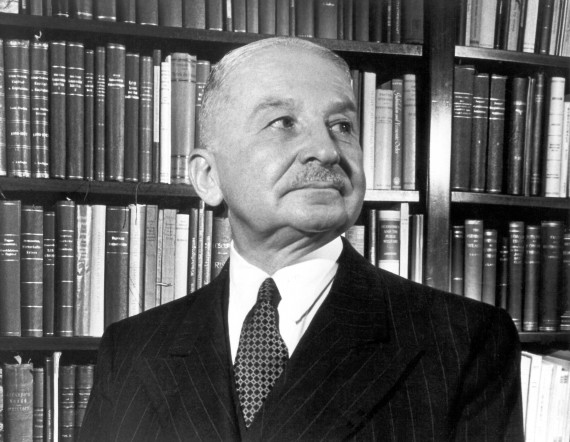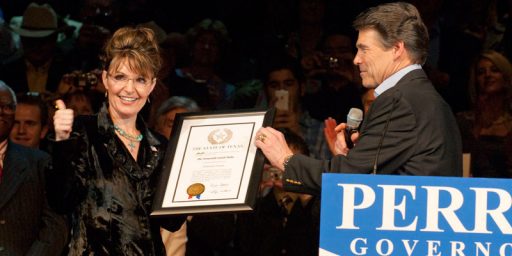The Things One Learns (Austrian Economic and Praxeology Edition)
Fun with praxeology.
 I have long known that Austrian economics was driven by pure philosophy in ways that other branches of economics are not. However, I did not fully realize the extent to which this was the case. I was recently reading a series of blog posts by Paul Krugman, Noah Smith, and Robert P. Murphy on the topic of inflation which led me to following quote from Ludwig Von Mises himself (emphases mine):
I have long known that Austrian economics was driven by pure philosophy in ways that other branches of economics are not. However, I did not fully realize the extent to which this was the case. I was recently reading a series of blog posts by Paul Krugman, Noah Smith, and Robert P. Murphy on the topic of inflation which led me to following quote from Ludwig Von Mises himself (emphases mine):
Praxeology is a theoretical and systematic, not a historical, science. Its scope is human action as such, irrespective of all environmental, accidental, and individual circumstances of the concrete acts. Its cognition is purely formal and general without reference to the material content and the particular features of the actual case. It aims at knowledge valid for all instances in which the conditions exactly correspond to those implied in its assumptions and inferences. Its statements and propositions are not derived from experience. They are, like those of logic and mathematics, a priori. They are not subject to verification or falsification on the ground of experience and facts. They are both logically and temporally antecedent to any comprehension of historical facts (Von Mises, 32).
I was, in a vague sense, aware of this position, but I did not realize how starkly stated the position was (especially since it seems to lead many to privilege their theories over evidence*).
Ultimately such a position is faith, not science (or even social science, if one wants to make a distinction**) despite alleged foundations in pure logic. Or, perhaps more accurately, it is ideology and not theory (certainly it can make that transmogrification quite quickly in any event) . At a minimum it is not surprising, therefore, that a lot of ideologues (not to mention hucksters like the goldbugs) like Austrian economics. At a minimum, I can see why it often appears (to me at least) that adherents to the Austrian POV are not living in the same reality as the one I appear to be residing within.
BTW, the broader context that lead me to these passages were blog post noting that many Austrians have been predicting significant, indeed dangerous, inflation as a result of various policies put forth to combat the Great Recession, especially the Fed’s quantitative easing. Such inflation has not materialized, it should be noted, although in the face of that evidence it appears that Murphy has simply re-defined what inflation is (which is what one has to do when one’s a priori assumption do no comport with reality). (Murphy does address this by pointing to a definition of inflation that has nothing to do with price increases, but if one is interested in that discussion, I suggest reading the blog posted linked above above and following the various links within them).
Note: Coming across John Quiggin’s post yesterday (Austrian economics and Flat Earth geography)reminded me that I intended to write about this toic.
—
*For example, Mises adjunct scholar Gene Callahan: “Empirical data cannot disprove any economic theory. But a preponderance of data running against our theory may be a sign that we reasoned incorrectly, and an aid in our ‘merciless self-criticism.'”
**And yes, I fully acknowledge that social and natural sciences are different. If anything, the nature of experiments constraint social scientific inquiry rather substantially (but that is a topic for another discussion).
Reference
von Mises, Ludwig. 1966. Human Action. Chicago: Henry Regnery.






Austrian economists in particular, and conservative economists overall, remind me of this cartoon.
It was the Austrians who advised Germany that the way to deal with the Great Depression was austerity. It led to a worsening of the Depression, leading to the election of you know who.
It was an Austrian, Friedrich von Hayek who predicted that adopting the democratic socialist Labor Party program of 1944 would lead the UK inevitably to Stalinist totalitarianism-the thesis of his book The Road to Serfdom . When he was proved 100 per cent wrong, he didn’t change his beliefs.
Austrians have predicted that deficit spending and loose monetary policy will fuel galloping inflation since 2008, and have been wrong every time. That hasn’t changed their policy recommendations in the slightest.
Notice a pattern? What’s interesting is how fiercely conservatives, particularly libertarians, defend them. The belief that free markets are perfect is one of the great conservative religious dogmas of our age.
As yes, reactionary economic theory: One theorist lies, & the others swear to it.
Economics is always about ideology and has nothing to do with science or even social science. After the great crash in 2008 even Alan Greenspan had to admit he had been wrong for most of his life.
For all the critiques of Cultural Anthropology (i.e. Vonnegut’s somewhat accurate description of it at Poetry masquerading as science), its worth noting that it’s concept of praxis/practice theory is completely the opposite of praxeology.
While pratice theory hods that it is possible to study and model human behavior, it also notes that such work *cannot* be done “*irrespective* of all environmental, accidental, and individual circumstances of the concrete acts.” There cannot be any premediated act — because everyone must act both in and through the cultural systems they are always already embedded in.
It’s always refreshing to encounter something less scientific than anthropology.
Yes to this. Makes it hard to discuss things with Austrians if you come from a data driven background. If the data suggests they are wrong, they just double down. They also have very odd views of history. For example, the existence of the Silk Road proved that we didn’t need government involvement in building roads. Of course, the vast majority of the Silk Road was not really a road. We had to wait until the Romans for that on any large scale and that was, yes, government sponsored.
The sad thing is that there are some things we can learn from libertarians, but they mostly seem to want total acceptance or nothing. Not much room for compromise.
Steve
I’ve known about this for many years (I used to believe this tripe). Truly, Ludwig von Mises was not master of his domain.
@matt bernius: Come now, everyone know that Praxis is the Klingon moon that exploded and led to negotiations with the Federation.
How else could Worf ever serve on the Enterprise?
@Rob Prather: Indeed. Like I said, I sort of knew it, but had never really looked into how stark the beliefs in question actually are.
@Steven L. Taylor: I started finding out how truly bad it was ten years ago when I returned to grad school. I had mostly abandoned it many years prior in favor of Milton Friedman. Still, grad school was illuminating. I’ve been laughing at myself since.
Austrians me of the isolated Japanese soldier holdouts after WW2. Austrians are still fighting the Soviet Union.
@Steven L. Taylor:
Oh contraire Mr. Taylor. Everyone knows that Praxis is a deadly type of gas that, among other things, turns celery purple. This is, of course, the primary reason that the 5th Doctor wears a bit of salad on his lapel.
[in other words: I see your geeky sci-fi reference and raise you one]
Since it seems that praxeology is basically a form of religious faith, how long before someone sues to be exempt from taxation/having to use fiat currency on the basis of Hobby Lobby?
@matt bernius: Well played, sir. Well played.
A couple of days ago (looking, I find it was 7/31) the Times reported that the Euro Zone had slipped to 0.4% inflation and an unemployment rate of 11.5%. We in the US could’ve seen numbers like that if we’d followed the same advice as the ECB.
And Austrians get very, very mad if one refers to this as religious thinking.
von Mises is also the man responsible for the “mainstream” interpretation of probability statements — which is to say, that they are statements about what would be observed as the limiting behavior of an infinite sequence of identical trials of the same experiment. But, you say, that means we can’t actually ever know the probability of anything? Right. And we can’t coherently ask “What is the probability that Shakespeare’s plays were actually written by Bacon?”. Right.
Gah.
You know, I had intuited this, I have on many occasions accused these people of religious faith rather than science, but it’s just so stark. I felt it and now there it is. Christ.
I despise ideology. It’s what bright people run to when they get tired of thinking. It’s a deliberate intellectual self-mutilation. It’s intellectual suicide.
@rudderpedals: That’s pretty accurate. It’s like supply side economics, it never works but it just won’t die. You can say the same thing about the neoconservatives.
Hmm, I don’t consider those subscribing to Austrian economics much different from disciples of other macro theories. IMO, with very few exceptions, most macro is faith-based where adherents begin from a POV and attempt to fit the data into their prefered theory. All the famous economists reason this way and – suprise – their biases are constantly confirmed! Very few are willing to consider that one theory might not explain everything, or may only apply in limited circumstances.
As a side note, it would be interesting to see a list of economists who changed their “school” mid-career.
I think the difference Andy, is that Austrians say that empirical evidence does not even matter. So, in the case of Keynesians, after the 70s, they mostly became New Keynesians as models and theory had to be changed because it was unable to explain the inflation and unemployment we had in that era. Austrians don’t do that. Even for a social science, it is very unusual to see this complete rejection of evidence.
Steve
It should be noted Hayek himself did not live up to his claim praxeology is not subject to verification or falsification. By the mid-1930’s he had abandoned his support for liquidationism after the process failed to return the economy to equilibrium, so he did in fact respond to empricism at least on occasion.
Where austrians go most wrong today is regarding how prices are set, inflation, insistence on an exogenous money supply and interest rates. Austrian Business Cycle Theory itself is a train wreck with no relevance to how firms actually function. Because of these problems austrians such as Murphy are largely marginalized to making metaphysical or normative arguments rather positive.
The only school of thought out there which devotes itself to an empirical approach is the post-keynesian school.
@Andy:
I must disagree. It’s possible for a much more scientific approach to be used, even compared to today. The problem is that most people defer to their normative beliefs, rather than ceding those beliefs to predictive value. If predictive value played a more important role all around, things would be better.
@Ben Wolf:
Even the New Keynesians insist on putting micro foundations in their models, which seems very premature to me.
@Steven L. Taylor: Praxis: “We do not speak of such things with outsiders.”
@Rob Prather: Post-keynesians take a different approach than New Keynesians, who practice what Joan Robinson called a “bastardized form of Keynesianism”. NKs embrace rational expectations, atomistic individuals and near-instantaneous adjustment of prices to achieve equilibrium, which puts them squarely in the neoclassical or orthodox tradition. In fact reading through Keynes’ works shows there’s very little Keynesianism in NK at all.
PKs, on the other hand, reject the model of rational actors who can perfectly see the future, instead emphasize the role of uncertainty and market failure without intervention. They reject, as Keynes did, the very existence of a labor market and instead consign wages to the realm of effective demand.
Put simply PKs were warning about the financial crash well ahead of time and also made correct calls on inflation, interest rates and government bond yields because they observe and then fashion theory around the observation. The mainstream which includes NKs is as vulnerable to a priori thinking as austrians.
@Ben Wolf: Thanks for the info.
@stonetools: Austrian and conservative (except perhaps in USA) are not near synonyms.
Of course virtually anyone properly educated in economics at least at the graduate level knows the Austrians are ideologues first, and sometimes economists third or fourth (if at all).